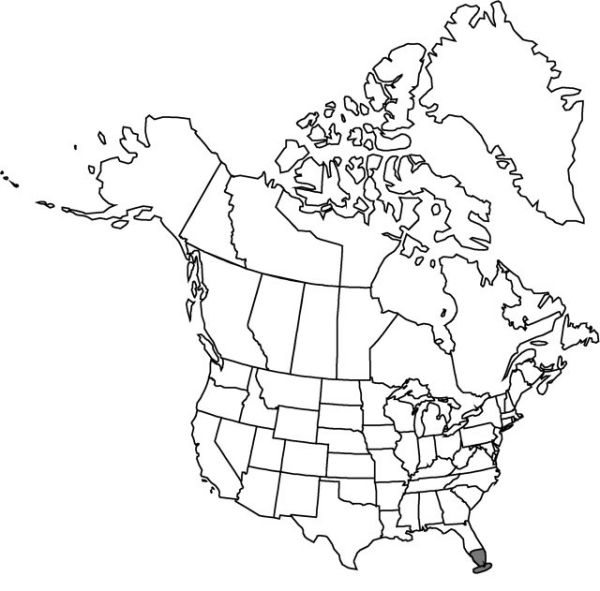Difference between revisions of "Epidendrum nocturnum"
Enum. Syst. Pl., 29. 1760.
FNA>Volume Importer |
imported>Volume Importer |
||
| (3 intermediate revisions by 2 users not shown) | |||
| Line 12: | Line 12: | ||
|name=Amphiglottis nocturna | |name=Amphiglottis nocturna | ||
|authority=(Jacquin) Britton | |authority=(Jacquin) Britton | ||
| + | |rank=species | ||
}} {{Treatment/ID/Synonym | }} {{Treatment/ID/Synonym | ||
|name=Auliza nocturna | |name=Auliza nocturna | ||
|authority=(Jacquin) Small | |authority=(Jacquin) Small | ||
| + | |rank=species | ||
}} {{Treatment/ID/Synonym | }} {{Treatment/ID/Synonym | ||
|name=Epidendrum carolinianum | |name=Epidendrum carolinianum | ||
|authority=Lamarck | |authority=Lamarck | ||
| + | |rank=species | ||
}} {{Treatment/ID/Synonym | }} {{Treatment/ID/Synonym | ||
|name=Nyctosma nocturna | |name=Nyctosma nocturna | ||
|authority=(Jacquin) Rafinesque | |authority=(Jacquin) Rafinesque | ||
| + | |rank=species | ||
}} | }} | ||
|hierarchy=Orchidaceae;Orchidaceae subfam. Epidendroideae;Orchidaceae tribe Epidendreae;Orchidaceae (tribe Epidendreae) subtribe Laeliinae;Epidendrum;Epidendrum nocturnum | |hierarchy=Orchidaceae;Orchidaceae subfam. Epidendroideae;Orchidaceae tribe Epidendreae;Orchidaceae (tribe Epidendreae) subtribe Laeliinae;Epidendrum;Epidendrum nocturnum | ||
| Line 46: | Line 50: | ||
-->{{#Taxon: | -->{{#Taxon: | ||
name=Epidendrum nocturnum | name=Epidendrum nocturnum | ||
| − | |||
|authority=Jacquin | |authority=Jacquin | ||
|rank=species | |rank=species | ||
| Line 61: | Line 64: | ||
|publication year=1760 | |publication year=1760 | ||
|special status= | |special status= | ||
| − | |source xml=https:// | + | |source xml=https://bitbucket.org/aafc-mbb/fna-data-curation/src/2e0870ddd59836b60bcf96646a41e87ea5a5943a/coarse_grained_fna_xml/V26/V26_1248.xml |
|subfamily=Orchidaceae subfam. Epidendroideae | |subfamily=Orchidaceae subfam. Epidendroideae | ||
|tribe=Orchidaceae tribe Epidendreae | |tribe=Orchidaceae tribe Epidendreae | ||
Latest revision as of 21:12, 5 November 2020
Plant cespitose, to 100 cm. Roots basal, 1–2.5 mm diam. Stems unbranched, straight, terete proximally, compressed distally, to 90 cm. Leaves 4–10, evenly distributed on distal 1/2 of stem; petiole to 46 mm; blade elliptic, 2-lobed, 6–15 × 0.5–3 cm, leathery. Inflorescences nearly corymbose; peduncle zigzag, branching with time, greater than 5 mm, producing flowers over several years. Flowers resupinate, produced in succession, 1–2 at a time; sepals yellowish, narrowly linear-lanceolate, to 60 × 6 mm, apex acute; petals yellowish, narrowly linear-lanceolate, to 58 × 2 mm; lip white, deeply 3-lobed, middle lobe narrowly linear-acuminate, overall to 24 × 40 mm, lateral lobes obliquely semiovate; callus yellow; column 18 mm; clinandrium hood surpassing anther, erose; anther ovoid; ovary 45–50 mm. Capsules ellipsoid; pedicel 7–14 mm; body 25–32 × 10–15 mm; beak 16 mm.
Phenology: Flowering Sep–Mar; fruiting Jan–Apr, sporadically throughout year.
Habitat: Epiphytic on trees and palms in forests, hammocks, and swamps
Elevation: 0–30 m
Distribution

Fla., Mexico, West Indies, Central America, South America.
Discussion
Epidendrum nocturnum is widespread and common throughout the tropical regions of the Western Hemisphere. Outside the flora area, the size of stems, leaves, and flowers is somewhat variable, and plants or whole populations often have cleistogamous flowers. A number of good species occur in the Neotropics. The length of the ovary and the pedicel of the capsule often are good specific characters.
Flowers are very fragrant at night, with an almost pungent scent.
Selected References
None.